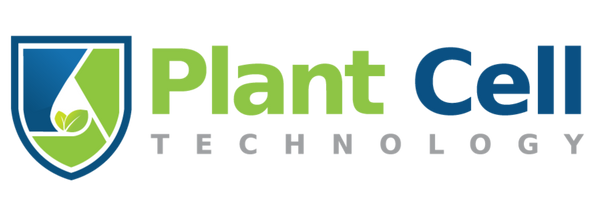
6 Plant Tissue Culture Books to Keep Learning
As a content and community manager, I leverage my expertise in plant biotechnology, passion for tissue culture, and writing skills to create compelling articles, simplifying intricate scientific concepts, and address your inquiries. As a dedicated science communicator, I strive to spark curiosity and foster a love for science in my audience.


Introduction
Most of us are fans of books when it comes to learning a topic in detail and in a structured form.
While there’s no denying that blogs are helpful too, but only when you need to get answers to your specific questions.
Especially when it comes to learning about advanced technologies, such as plant tissue culture (PTC), books can be your best friends. They offer a structured and comprehensive learning experience, taking you from the fundamental principles to intricate details that can significantly impact your experiments. Here's why books are invaluable resources for aspiring PTC enthusiasts:
- Master the Fundamentals: Books establish a strong foundation in plant biology, aseptic techniques, and growth environment manipulation – the cornerstones of PTC.
- Become a Problem-Solver: Clear explanations and troubleshooting guides in books help diagnose issues like stunted growth or contamination, allowing you to fix them.
- Make Informed Choices: Books explain the scientific basis behind PTC techniques, empowering you to select the right media, schedules, and growth regulators for your experiments.
- Learn from Experts: Renowned researchers share their experience through books, saving you time and frustration by learning from their successes and failures.
- Structured Learning: Unlike scattered online resources, books offer a comprehensive and reliable overview of PTC, allowing for systematic learning and revisiting key topics.
So, in this article, we bring you six books that will help you learn more about the tissue culture technique, do better in your experiments, and grow your plant business!
1. Plant Cell Culture: A Practical Approach
By R. A. Dixon, Robert A. Gonzales

Figure: The book cover of the second edition of the Plant Cell Culture: A Practical Approach.
This completely revised edition of a popular resource covers the rapidly evolving world of plant cell culture techniques. It caters to a broad audience, from students to researchers, by:
-
Balancing Theory & Practice: The book offers a clear explanation of general principles alongside detailed descriptions of specific protocols.
-
Wide Range of Methods: It covers a comprehensive range of methods used in both fundamental research and practical applications of plant cell cultures.
-
Industry Applications: The book explores how plant cell culture techniques are being utilized in various industries, including genetic engineering and micropropagation.
-
For All Stages of Culturists: Researchers contributed their knowledge and experience, creating this valuable resource for plant scientists, botanists, plant physiologists, and biotechnology students.
2. Advances in Plant Tissue Culture:
Current Developments and Future Trends
By Avinash Chandra Rai, Ajay Kumar, Arpan Modi, and Major Singh

Figure: The book cover of the Advances in Plant Tissue Culture: Current Developments and Future Trends.
"Advances in Plant Tissue Culture: Current Developments and Future Trends" offers a comprehensive and up-to-date look at this revolutionary field. This resource is particularly valuable for students and early-career researchers in plant science and biotechnology.
Key Highlights:
- Emerging Applications: The book explores how plant tissue culture is being utilized in various aspects, including sustainable agriculture, plant breeding, horticulture, and forestry.
-
Cutting-Edge Technologies: It talks about the latest advancements in plant tissue culture technology, including applications in:
- Crop improvement
- Clonal propagation (rapid multiplication)
- Somatic hybridization (combining cells from different species)
- Embryo rescue (saving developing embryos)
- Germplasm conservation (preserving genetic diversity)
-
Beyond Traditional Methods: The book highlights how plant tissue culture techniques can surpass conventional methods for:
- Breaking seed dormancy (inducing seed germination)
- Genetic conservation (preserving plant genetic material)
This book empowers students and researchers to explore the vast potential of plant tissue culture
3. Plant Tissue Culture: Practices and New Experimental Protocols
By B. N. Sathyanarayana, Dalia B. Varghese

This practical guide, "Plant Tissue Culture: Practices and New Experimental Protocols," bridges the gap in PTC resources by focusing on hands-on procedures. It offers:
-
Focus on Practical Application: "Plant Tissue Culture: Practices and New Experimental Protocols" fills a gap by prioritizing practical procedures and protocols for beginners.
-
Clear Instructions & Troubleshooting: The book offers clear, step-by-step instructions alongside troubleshooting tips based on the author's experience.
-
Real-World Examples: Unique features include actual protocols used with various plant species by different scientists, providing practical applications.
-
Visually Engaging: High-quality color photographs, including fluorescence images, enhance understanding and engagement.
-
Valuable for Students: This resource is particularly valuable for students seeking a hands-on approach to plant tissue culture.
4. Plant Tissue Culture: An Introductory Text
By Sant Saran Bhojwani and Prem Kumar Dantu

This book offers a comprehensive exploration of plant tissue culture (PTC), a foundational technique in plant biotechnology. It caters to both beginners and experienced researchers seeking to unlock the potential of plant cells.
Key Focus Areas:
Plant Cell Totipotency: The book covers the fascinating concept of totipotency, where a single plant cell can develop into a whole plant. PTC serves as a powerful tool to demonstrate this remarkable ability.
Applications Galore: The book explores a vast array of practical applications for PTC, including:
- Crop Improvement: Techniques like haploid and triploid production, in vitro fertilization, and variant selection pave the way for enhanced crops.
- Clonal Propagation: Micropropagation allows rapid multiplication of desirable plant varieties.
- Disease Elimination: Techniques like shoot tip culture help produce virus-free plants.
- Germplasm Conservation: The book explores methods for preserving valuable plant diversity.
- Industrial Applications: The production of valuable secondary metabolites used in medicine and industry is covered.
- Genetic Engineering: The book explores how PTC facilitates the regeneration of plants from genetically modified cells.
Learning by Doing: The book goes beyond theory and provides well-tested protocols and media compositions for various PTC techniques, making it a valuable lab manual.
Structured Learning: Divided into 19 chapters with clear illustrations, the book offers a structured journey through PTC fundamentals and applications.
In-Depth Exploration: Each chapter concludes with "Suggested Further Reading" for those seeking deeper dives into specific topics.
Comprehensive Reference: A detailed subject and plant index allows for easy navigation and revisiting of key concepts.
5. Plant Tissue Culture: Techniques and Experiments
By Sunghun Park
Figure: The book cover of the third edition of the book Plant Tissue Culture: Techniques and Experiments.
Plant Tissue Culture: Techniques and Experiments, Fourth Edition is a comprehensive resource for anyone interested in plant cell manipulation. Building upon its successful past, this edition offers:
- Time-Tested Techniques: Backed by nearly 30 years of classroom use, the book provides proven methods for successful plant culturing.
- Diverse Plant Materials: Experiments are designed for readily available plant materials, allowing for year-round exploration.
- Cutting-Edge Technologies: The book covers the latest advancements like CRISPR/Cas9 gene editing and RNAi technology.
- Theory & Practice: It bridges the gap by combining clear explanations with detailed methodologies and comprehensive illustrations.
- Wide Applicability: The fundamental principles and techniques can be applied to various crop plants, including those in agriculture, horticulture, and forestry.
- Practical Guide: The book guides readers through the entire process, from lab setup to experimentation and data collection.
This book empowers both university students and plant scientists to learn more about plant tissue culture and its applications.
6. Plant Cell Culture Protocols

By Victor M Loyola-Vargas (Editor), Neftali Ochoa-Alejo (Editor)
Figure: The book cover of the fourth edition of the book Plant Cell Culture Protocols.
This book stands out as a comprehensive collection of the most frequently used techniques in plant cell and tissue culture. Its significance lies not just in the breadth of methods covered, but also in their direct applicability to ongoing research and commercial endeavors.
Technique Range:
The book caters to researchers at all levels by encompassing both foundational and advanced methods:
- Essential Practices: It covers general methodologies like culture initiation, growth and viability assessment, and contamination control – all crucial for establishing successful cell cultures.
- Advanced Applications: For experienced researchers, the book explores highly specialized techniques like chloroplast transformation. This complex process involves isolating and culturing protoplasts (plant cells without cell walls), a valuable tool for manipulating chloroplasts (the site of photosynthesis) for research purposes.
Other Effective Ways To Learn About Tissue Culture
PCT Blogs
Curious about growing plants from tiny cells? Our blog is your one-stop shop for plant tissue culture (PTC)! We offer clear explanations of PTC terms, protocols for popular plants, and even a guide to building your own home lab. Whether you're a beginner or a researcher, our blog provides informative and up-to-date resources to fuel your exploration of this fascinating scientific field.

PCT YouTube Videos
Learn plant tissue culture by watching the experts! Our weekly videos showcase Francisco Palacio—a houseplant, succulent, and carnivorous plant pro—sharing tips and tricks for successful experiments. Plus, talks about fungal tissue culture with Shay, who offers insights on cultivating mycelium in your lab.

PCT Tissue Culture Master Classes
We can be knowledgeable by referring to books, blogs, or videos, but we can never be an expert until we try our hands on the technique. That’s why we offer tissue culturists a chance to learn directly from the experts about how to do tissue culture right! In addition to offering you tons of knowledge and hands-on experience, this class also offers you the chance to network with like-minded people, directly interact with the expert in the area and get your questions answered, and earn a certificate to show off your skills!
Want to Step Into Tissue Culture Industry? Plant Cell Technology Can Help!
You know we help you by offering various written and video resources related to plant tissue culture. However, if you are unaware, you must know that PCT has a one-stop shop for all your tissue culture needs.
Whether you need the nutrient media, solidifying agents, hormones, or jars and laminar hood, we have everything in the store!
So, shop your tissue culture requirements NOW and get started in tissue culture!
Have any questions related to our products and services? Reach out to us at info@plantcelltechnology.com and we will be happy to assist you!
Blog Categories
View by Level
Popular Blogs

The Science of Better Multiplication and Rooting in Tissue Culture
Every tissue culture hobbyist or professional eventually hits a plateau. You have a protocol that works, you have your medium...
Read More
How MSAP Tracks the "Invisible Stress" of Plant Tissue Culture
In plant tissue culture, researchers often encounter a phenomenon where regenerated plants do not resemble the donor plant, despite being genetic...
Read MoreSubscribe to Our Newsletter
2 comments
I took a masterclass on line in February 2024. I have tried to get started with an Athena kit. I have not been able to get any growth and would like to change my media to that used by PCT along with PPM and hormones. What would be the best to buy?
Good study, I’m interested to know more about this science of plants







Join the conversation
Your email address will not be published. Required fields are marked